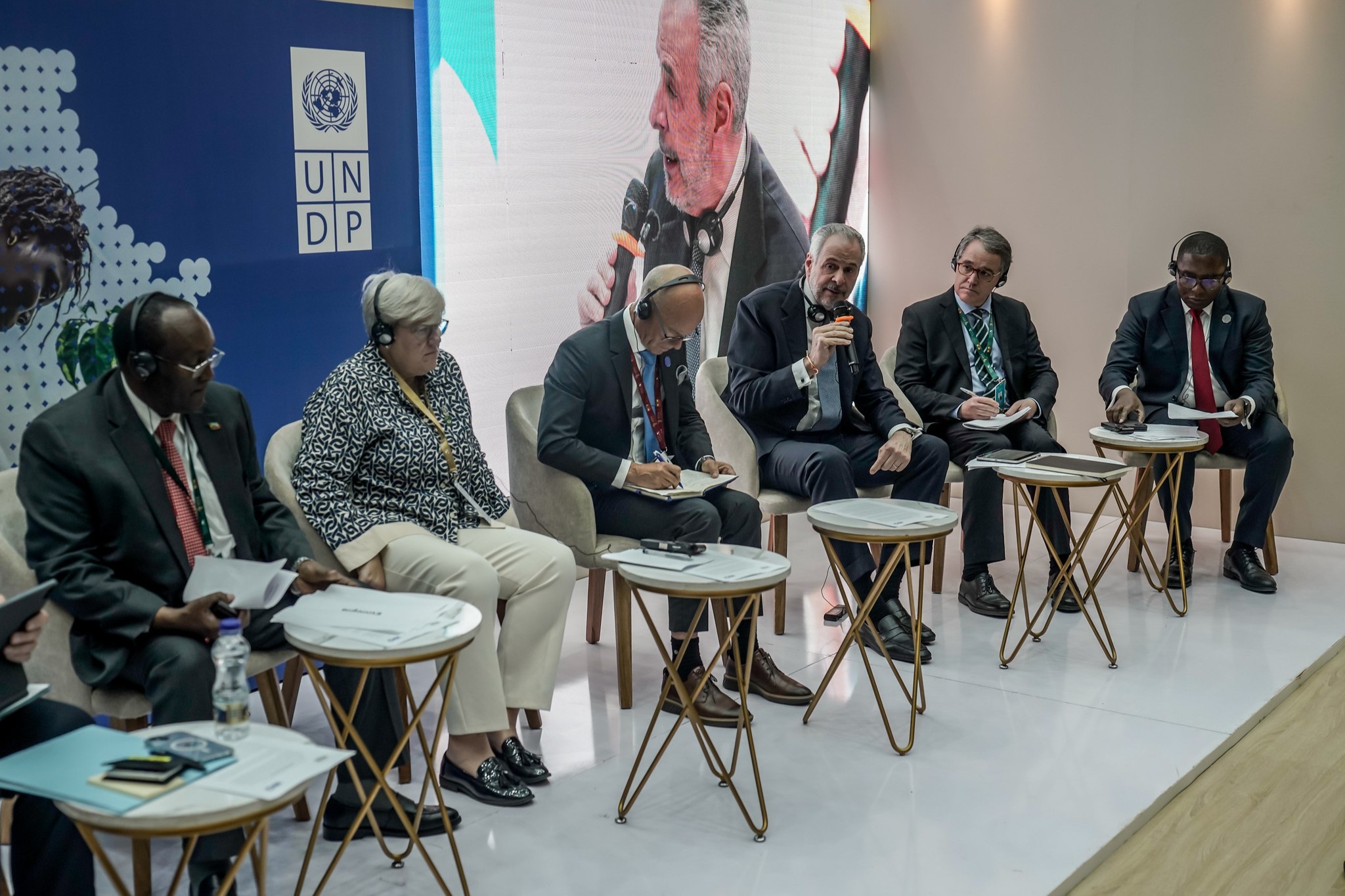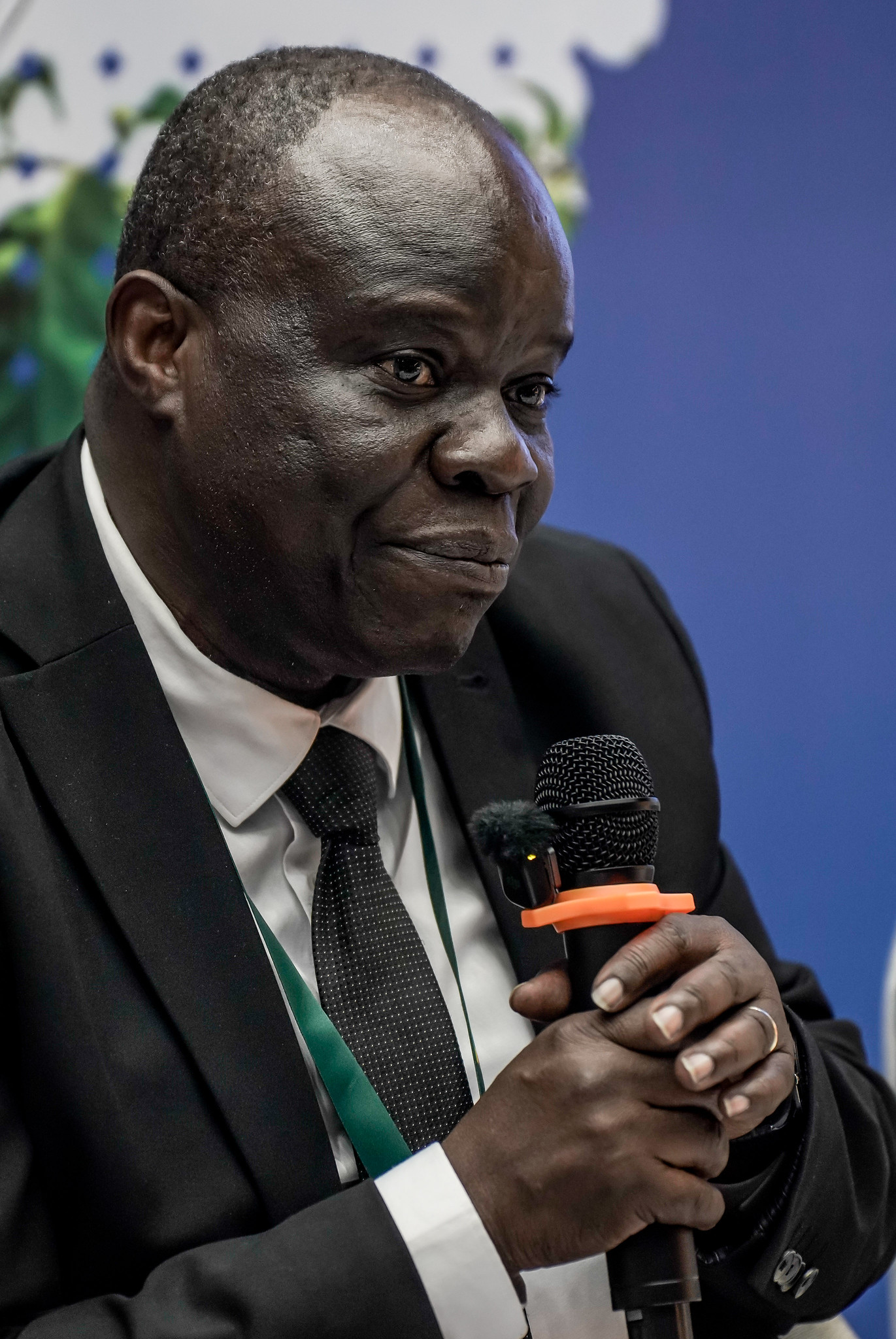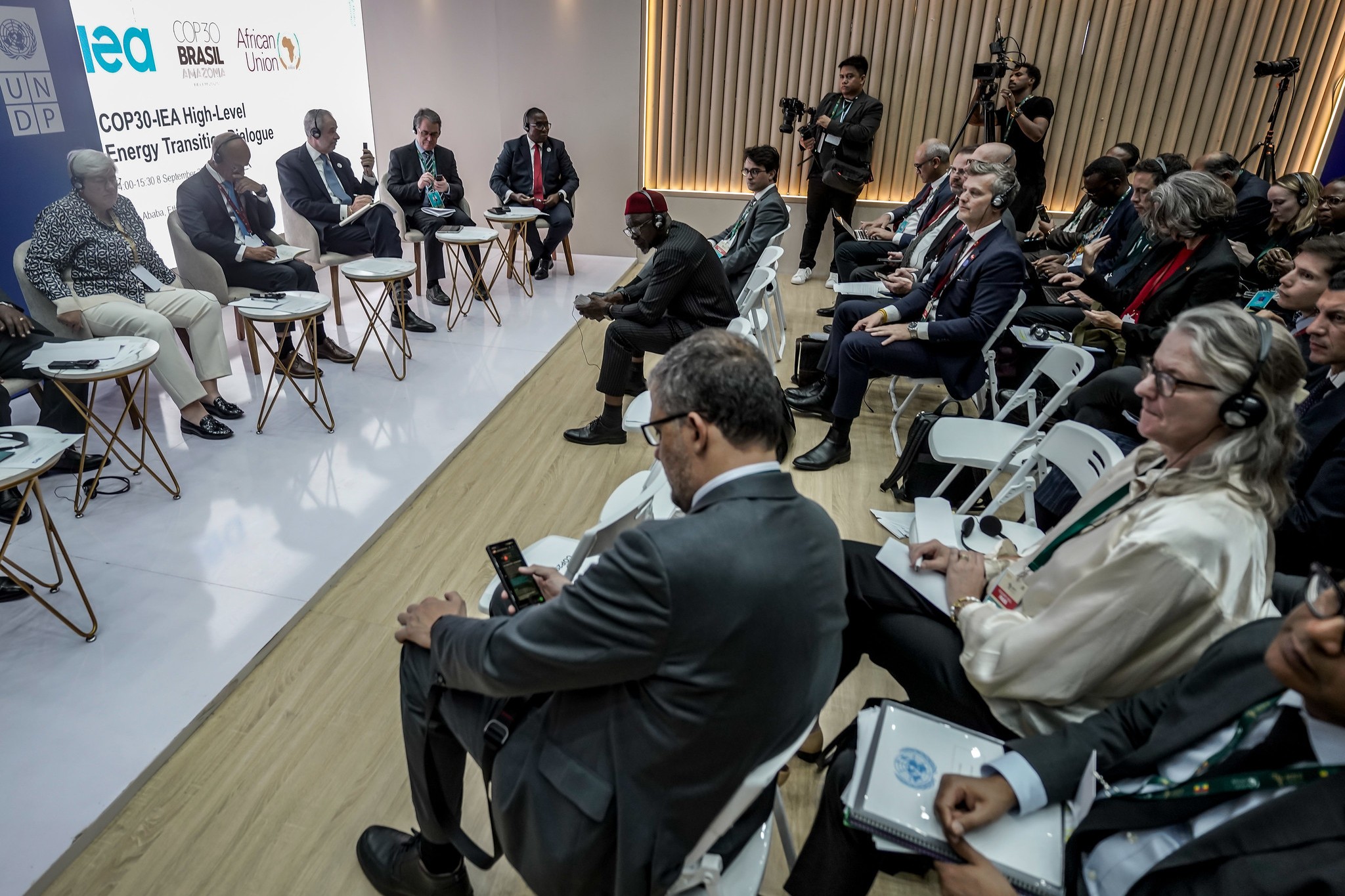Clean energy and social justice: the global call echoing from Africa to Belém
At the Africa Climate Summit, authorities advocated for a just and accessible energy transition and suggested that COP30, in Belém, should mark the beginning of effective implementation of solutions. The debate highlighted the urgency of the issue, noting that 600 million Africans still lack access to electricity

By Leandro Molina / COP30Brasil
On Monday, September 8, global authorities participated in a strategic panel at the Africa Climate Summit where they outlined paths toward a just and accessible energy transition. They emphasized the importance of implementing concrete actions in the lead-up to COP30. COP30 President Ambassador André Corrêa do Lago firmly stated that development and climate action are not contradictory.
“Brasil is committed to using COP30 to expand the perception that it is possible to reconcile energy access and the fight against climate change,” he said. He emphasized that Brasil, with its diversity of realities, demonstrates that adaptable solutions are viable in different contexts—a message especially relevant to Africa.
Mr. Corrêa do Lago also stressed the urgency of shifting the global narrative around the climate agenda. “Unfortunately, many still see this transition as anti-economy or anti-people. We must remember that it is about generating jobs, growth, and a better quality of life,” he said. His remarks were a call for practical, measurable actions aligned with already established goals, such as tripling renewable energy capacity and energy efficiency by 2030, as decided at COP28.

Urgency for a shift in the climate debate
In a striking intervention during the panel, Richard Muyungi, a Tanzanian government representative and Chair of the African Group of Negotiators at the UNFCCC, argued that the basic needs of the African continent must be at the heart of COP30 negotiations, marking a historic shift in the global climate debate. Mr. Muyungi stressed that this is the first time global climate discussions have truly centered on the issues that matter most to the people of Africa.
He presented data illustrating the access crisis plaguing the continent, with around 1 billion people lacking access to clean cooking methods. “We have women and children not going to school, not being productive for the continent, simply because they spend 10 hours collecting firewood and another 10 hours trying to cook a simple meal,” he reported.
For Richard Muyungi, these are not abstract numbers, but the very rationale for a just energy transition. “When you talk about transition in the context in which we negotiate, you need to see what is just,” he argued. For him, justice translates into clear goals. “Mission 300, which aims to provide electricity access to at least half of these 600 million people by 2030.”
The numbers reveal the dramatic scope of the challenge. In Africa, 600 million people still live without electricity, alongside those lacking clean fuels for cooking. Globally, this figure rises to 2.3 billion people depending on polluting sources to prepare food, with severe impacts on health, the environment, and gender equality.
Ms. Dymphna Van Der Lans, from the Clean Cooking Alliance, was direct: “There is no universality or justice without access to clean cooking.” According to her, this reality requires not only technological innovation, but also accessible financing and international cooperation.
COP30 on implementation
Participants agreed that COP30 must be the “conference of implementation”—the moment to turn speeches into tangible outcomes. To achieve this, it will be essential to overcome barriers such as the high cost of capital in developing countries, the lack of grid and storage infrastructure, and fragmented initiatives.
Representatives from Germany, Italy, and Azerbaijan, among others, emphasized the importance of channeling concessional investments, reducing perceived risks, and honoring financial commitments already made. As Ms. Rachel Kyte, UK Special Climate Representative, recalled: “It is time to prioritize discipline and focus, consolidating and scaling what already works, rather than launching more acronyms and disconnected programs.”

The Brazilian High-Level Climate Champion for COP30, Dan Ioschpe, strongly argued that the energy transition must be synonymous with access and justice, placing these issues at the core of the 2025 Belém conference. Mr. Ioschpe outlined a practical, results-driven vision. “COP30 is all about implementation,” he said.
Mr. Ioschpe explained that his work is structured across 30 activation groups, each focused on key objectives and tangible solutions. The climate champion also warned of critical infrastructure bottlenecks. “It is not enough just to generate renewable energy. We are at a point where we have nowhere to channel this additional energy,” he illustrated, calling for massive investments in transmission and storage.
The Grand Barrage, symbol of Ethiopia's energy transition
Among the projects mentioned, the one that attracts the most attention is the Grand Ethiopian Renaissance Dam, the largest hydroelectric project in Africa. Located on the Blue Nile, the 1-kilometer-long, 145-meter-high dam is expected to double Ethiopia's power generation capacity and provide electricity to millions of people who currently lack access.
At the close of the panel, remarks converged on the message that the energy transition is not an obstacle to development, but its main driver. COP30 in Belém is thus not an end in itself, but an essential starting point for transforming global consensus into clean, accessible, and just energy for millions of people.
At the close of the panel, remarks converged on the message that the energy transition is not an obstacle to development, but its main driver. COP30 in Belém is thus not an end in itself, but an essential starting point for transforming global consensus into clean, accessible, and just energy for millions of people.
At the close of the panel, remarks converged on the message that the energy transition is not an obstacle to development, but its main driver. COP30 in Belém is thus not an end in itself, but an essential starting point for transforming global consensus into clean, accessible, and just energy for millions of people.
The United Nations Development Program (UNDP) and the International Energy Agency (IEA) led the debate on pathways to a just energy transition.
